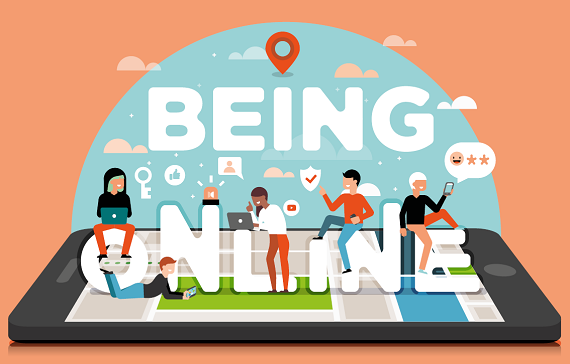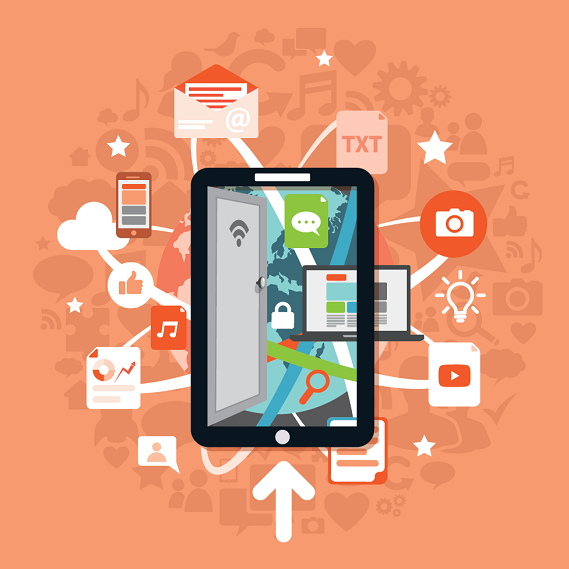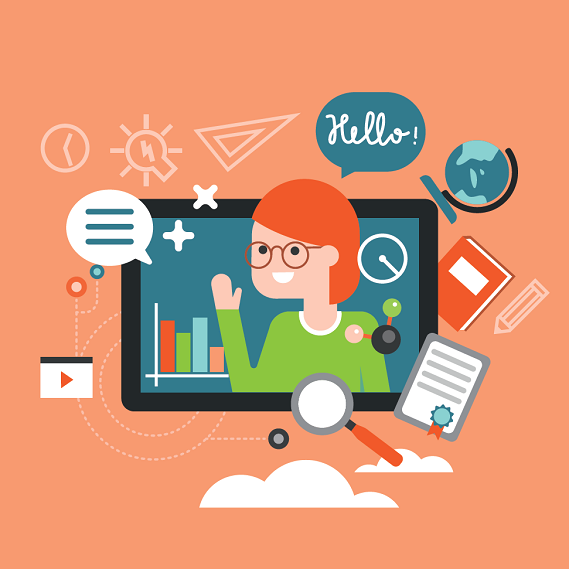Being Online
Being online illustrates the contextual preconditions for digital citizenship: access to digital technology, basic functional and digital literacy skills and a secure technical infrastructure.


Children and young people need to be empowered and educated to ask for help and develop the support needed to become resilient.
Olivia, 15, Denmark
Although seemingly no more recent data is available on the level of access to internet in schools, which, for certain sectors of the population, is the main source of equal opportunities, anecdotal evidence through youth participation suggests that this is low. A March 2015 Eurostat report states: “The vast majority of young people used the internet at home, while about half made use of the internet at other people’s houses and about 40% at a place of education”.

Teachers must be present and active in children’s lives from the earliest ages – babies, toddlers and young children – because creating a strong foundation will greatly support their online and offline behaviours in later years.
Early childhood development teacher, Riga
With respect to basic digital literacy, too many children, even in Europe, are unable to benefit, or at least fully benefit, from basic education because of poverty, their gender, their ethnicity or where they live. The OECD (2016) estimates, for example, that 168 000 15-year-olds in France do not yet have the basic knowledge and skills needed to thrive in modern societies, and adults in only seven European OECD countries perform at the benchmark level on the literacy scale.
Cultural and social obstacles to equitable access and inclusion and to the development of basic digital literacy skills are equally difficult to overcome, and are not always directly related to the socio-economic status of families. Today we are seeing quite another form of digital divide, with technology-rich children at risk through poorly supervised and/or excessive access to technology, often in very early childhood, to the detriment of age-appropriate social and physical pursuits. This can result in young children skipping developmental stages in early childhood, thereby incurring a long-lasting impact on their educational potential.

There is a big overlap between being a citizen in the “real world” and being a digital citizen. Some people who protest online get a false sense of doing something, and often don’t even go to vote in elections.
European Parents Association
A balance between on- and offline activities is important for children and people of all ages, for the development of empathy, observation and listening skills, and co-operation strategies, which are all key competences in digital citizenship. Knowledge and critical understanding of self, too, is a stepping stone to becoming an active citizen, and today includes knowing when and how to use or not use technology, as well as understanding the impact and reach of our actions and words in the digital space.

CHECKLIST: ACCESS AND INCLUSION
- What impact does technology have on social access and inclusion?
- How can you contribute in the areas where you think inclusion is currently not where it should be?
- How equipped are our schools, teachers and learning materials for the technological age?

CHECKLIST: LEARNING AND CREATIVITY
- How can creativity be meaningfully fostered when self-directed exploration and learning goals have little or no place in school curricula?
- What is the impact of heavy technology use at an early age on brain development and creativity?

CHECKLIST: MEDIA AND INFORMATION LITERACY
- How can children learn to process, analyse and make good decisions on their own with respect to the media and information available?
- How does media and information literacy contribute to all necessary skills for citizens in a democratic society?
I believe that intensive studies should be done so that parents can make educated decisions on how much time their child is on digital media. The importance is to have an urgency here, not to find out 10 or 20 years from now how and to what degree digital media has debilitated our children.
Parent, France


